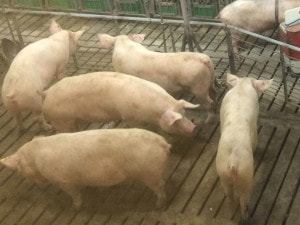 Original article by the office of Congresswoman Nancy Mace WASHINGTON – On Wednesday, Congresswoman Nancy Mace (R-S.C.) and Congresswoman Veronica Escobar (D-TX) released the following statement upon the introduction of the Pigs in Gestation Stalls (PIGS) Act of 2022, bipartisan legislation banning the use of gestation stalls, also known as crates for housing pregnant pigs: “It’s inhumane to force animals to live in such small spaces that they are unable to stand up or turn around. It is also dangerous. Extreme stress causes pregnant pigs to engage in self-mutilating behavior, making them more susceptible to diseases, such as zoonotic disease and swine flu, that can be passed on to humans. I support this bill because it will allow pregnant pigs the space to lie down, stand up, and turn around freely, a freedom that every living creature deserves,” said Rep. Nancy Mace. “We must hold our pig industry accountable by requiring them to follow adequate animal welfare conditions,” said Congresswoman Escobar. “I am pleased to join with my colleague across the aisle to enhance the safety and wellbeing of pregnant pigs.”
“Animals born and built to move and to turn around should at least be allowed to do so,” said Marty Irby, executive director of Animal Wellness Action, and senior vice-president at the Center for a Humane Economy. “Confining sows in crates that immobilize them is appalling and inhumane. We applaud Reps. Escobar and Mace for introducing the PIGS Act and working in bipartisan fashion to ensure that all animals are treated more humanely, including those raised for food.” “All animals, livestock included, deserve to have the opportunity to express their instinctive behavior,” said Will Harris, owner and proprietor of White Oak Pastures and former Small Business Person of the Year. “It is the responsibility of the stockman to provide an environment in which this is possible. Hogs were meant to root and wallow. Depriving them of this instinct is stressful to the hog, and a cruelty on the part of the hog producer. At the very least, they should not be immobilized.” Originally published on March 10, 2022 in a Congresswoman Nancy Mace press release Comments are closed.
|
